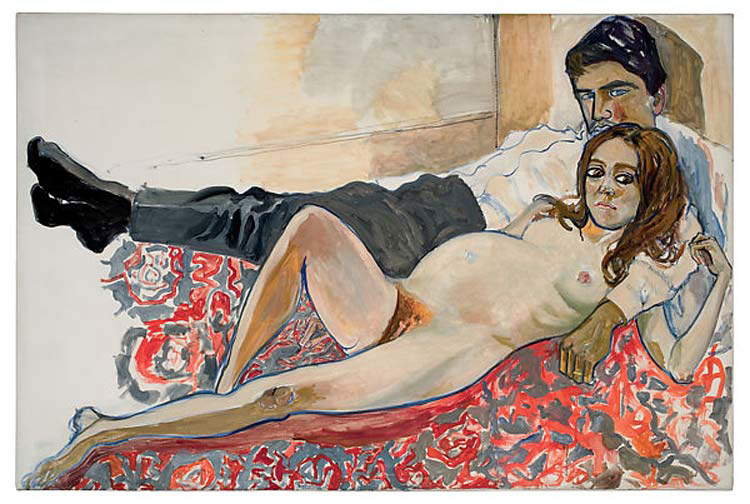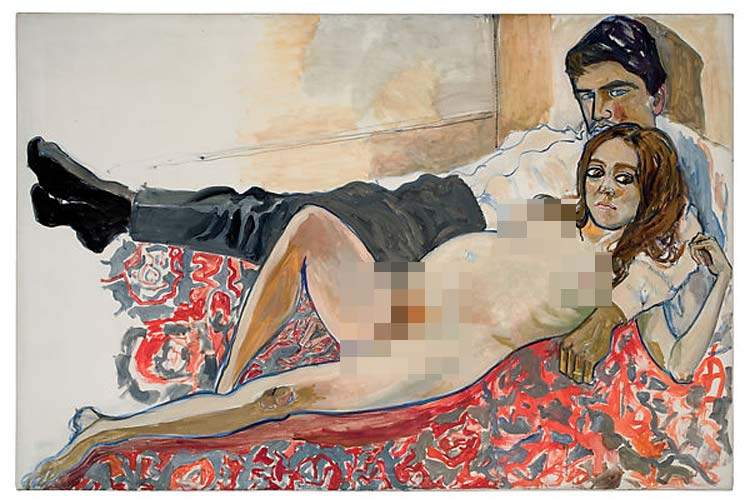Free and independent woman: at the Pompidou in Paris, the exhibition on Alice Neel
From Oct. 5, 2022 to Jan. 16, 2023, the Centre Pompidou in Paris is dedicating an exhibition to Alice Neel (Gladwyne, 1900-New York, 1984), a leading figure in 20th-century North American art. A painter long ignored during her lifetime, Alice Neel is now praised for the great acuity with which she portrayed American society, so much so that her immense work has even been compared to Balzac’s Comédie Humaine. Six years after the retrospective organized by the Van Gogh Foundation in Arles, the exhibition Alice Neel. Un regard engagé presents the artist from a perspective that highlights her political and social engagement, in connection with her membership in the Communist Party. the cause of women. This exhibition is part of the approach taken by the Centre Pompidou to deepen the study and knowledge of the work and work of women artists and increase the share of their work in the collection. Throughout her life, Alice Neel never stopped painting the marginalized of American society, those who are excluded because of their origin, the color of their skin, their eccentricity, their sexual orientation, or the radical nature of their political commitment. Although, thanks to growing notoriety since the 1960s, Alice Neel broadened the spectrum of her subjects to more privileged contexts, the artist always remained true to her convictions. A few weeks before her death, the painter declared, “In politics as in life I have always liked losers, outsiders. The smell of success did not appeal to me.”
Alice Neel painted women a lot: female nudes, far from the traditional canon shaped by the male gaze, as well as pregnant women in their simplest form, without any sentimentality. She even went so far as to portray a victim of domestic violence: for this she became an icon of militant feminism. Anticipating today’s debates, she explained in 1971, “I have always thought that women should get indignant and stop accepting the gratuitous insults that men inflict on them.” Spanning the periods of triumphant abstraction, pop art, minimal and conceptual art, Alice Neel, a free and independent woman, set herself with her figurative painting against the avant-gardes that marked the New York scene where she had taken up residence in the early 1930s. Living in working-class, multiethnic neighborhoods (Greenwich Village first, then Spanish Harlem) Alice Neel, a single mother living on welfare, felt close to her models with whom she sought to identify. Her engagement is never abstract, but nourished by real experiences. The history of painting without the filter of intimate closeness did not interest her. Alice Neel brings into our field of vision people who had previously remained in obscurity and fallen into oblivion: this is her first political gesture. The second lies in the choice of framing: a frontality that challenges. The artist places us right in front of her models.

The exhibition is divided into two parts loosely designed around the notions of class struggle and gender struggle. Each is presented as a thematic retrospective, beginning with the earliest works from the late 1920s, painted in Cuba, and ending with the last paintings made shortly before his death in 1984. A total of about 75 paintings and drawings are on display, accompanied by an excerpt from the film that French artist Michel Auder dedicated to Alice Neel in the late 1970s and other film productions. A selection of unpublished documents completes this presentation. Two other artists open the itinerary: a portrait of the artist by Robert Mapplethorpe and a work by Jenny Holzer from Alice Neel’s FBI file. In October 1955, FBI agents in fact visited her for questioning: in 1951 she was under investigation because of her ties to the Communist Party.
The project Alice Neel. Un regard engagé aims to present the artist from a particular perspective, highlighting her political and social engagement brought about by her membership in the Communist Party and the cause of women. The exhibition, initially scheduled for June 2020 and postponed to fall 2022 due to the health emergency, is accompanied by a catalog organized in two parts revolving on the one hand around political issues and on the other around the image of women’s and men’s bodies . In addition to four new essays and a rich iconography, the publication gives voice to the artist herself. Indeed, many works are accompanied by commentaries by Alice Neel herself, gathered from various sources and translated into French. An anthology of her previously unpublished texts and interviews and an illustrated chronology complete this portrait of a committed painter. Some comments by Jenny Holzer, author of a paper on Alice Neel’s FBI file at the time of McCarthyism, underscore its importance. For all information you can visit the Centre Pompidou website.
 |
| Free and independent woman: at the Pompidou in Paris, the exhibition on Alice Neel |
Warning: the translation into English of the original Italian article was created using automatic tools. We undertake to review all articles, but we do not guarantee the total absence of inaccuracies in the translation due to the program. You can find the original by clicking on the ITA button. If you find any mistake,please contact us.



























